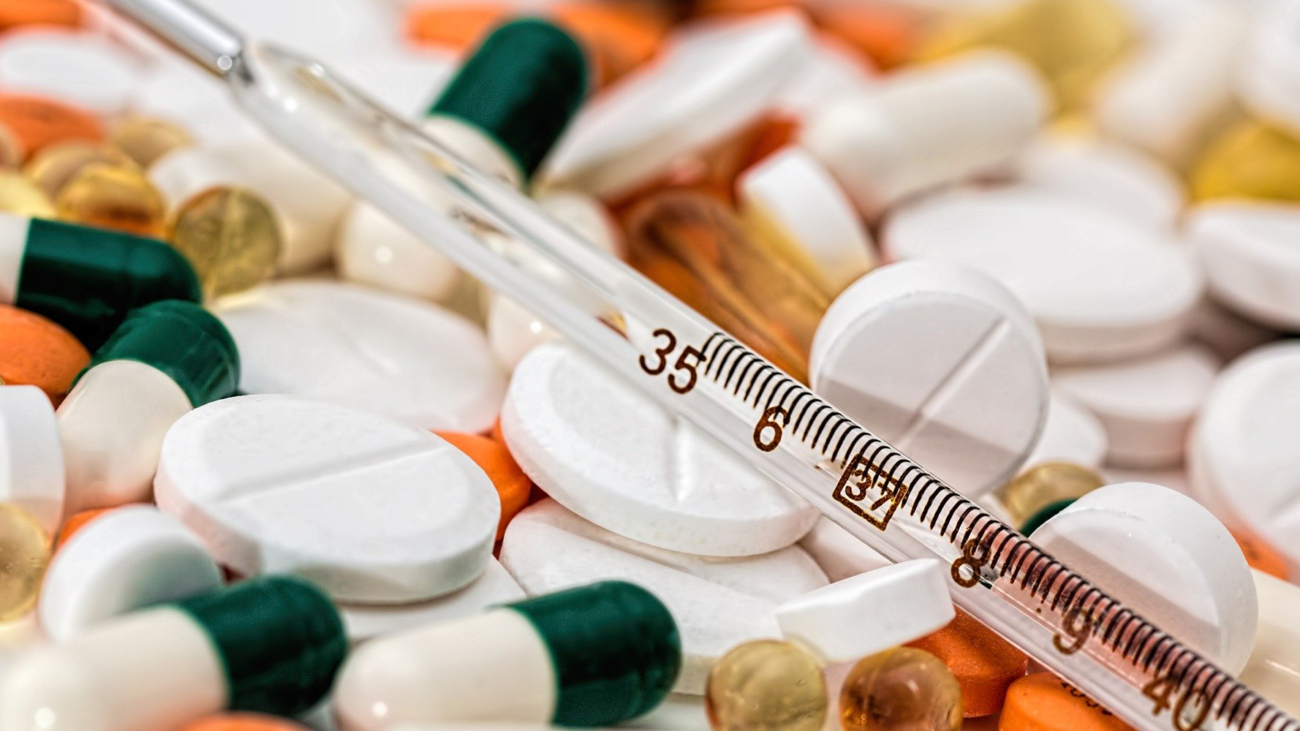Largest Ever Health Care Fraud Takedown
This week marked the largest ever health care fraud take down in US history resulting in 601 charged defendants across 58 federal districts, including 165 doctors, nurses and other licensed medical professionals, for their alleged participation in health care fraud schemes involving more than $2 billion in false billings. Of those charged, 162 defendants, including 76 doctors, were charged for their roles in prescribing and distributing opioids and other dangerous narcotics. Thirty state Medicaid Fraud Control Units also participated in today’s arrests. In addition, HHS announced today that from July 2017 to the present, it has excluded 2,700 individuals from participation in Medicare, Medicaid, and all other Federal health care programs, which includes 587 providers excluded for conduct related to opioid diversion and abuse.
Today’s health care fraud takedown was led and coordinated by the Criminal Division, Fraud Section’s Health Care Fraud Unit in conjunction with its Medicare Fraud Strike Force (MFSF) partners, a partnership between the Criminal Division, U.S. Attorney’s Offices, the FBI and HHS-OIG. In addition, the operation includes the participation of the DEA, DCIS, IRS-CI, Department of Labor, other various federal law enforcement agencies, and State Medicaid Fraud Control Units.
The charges announced today as part of the health care fraud takedownaggressively target schemes billing Medicare, Medicaid, TRICARE (a health insurance program for members and veterans of the armed forces and their families), and private insurance companies for medically unnecessary prescription drugs and compounded medications that often were never even purchased and/or distributed to beneficiaries. The charges also involve individuals contributing to the opioid epidemic, with a particular focus on medical professionals involved in the unlawful distribution of opioids and other prescription narcotics, a particular focus for the Department.
According to court documents, the defendants allegedly participated in schemes to submit claims to Medicare, Medicaid, TRICARE, and private insurance companies for treatments that were medically unnecessary and often never provided. In many cases, patient recruiters, beneficiaries and other co-conspirators were allegedly paid cash kickbacks in return for supplying beneficiary information to providers, so that the providers could then submit fraudulent bills to Medicare. Collectively, the doctors, nurses, licensed medical professionals, health care company owners and others charged are accused of submitting a total of over $2 billion in fraudulent billings. The number of medical professionals charged is particularly significant, because virtually every health care fraud scheme requires a corrupt medical professional to be involved in order for Medicare or Medicaid to pay the fraudulent claims. Aggressively pursuing corrupt medical professionals not only has a deterrent effect on other medical professionals, but also ensures that their licenses can no longer be used to bilk the system.
For the Strike Force locations, in the Southern District of Florida, 124 defendants were charged with offenses relating to their participation in various fraud schemes involving over $337 million in false billings for services including home health care and pharmacy fraud. In one case, an owner, medical director, and two employees of a sober living facility were charged with conspiracy to commit health care and wire fraud, substantive counts of health care fraud, and substantive counts of money laundering. The indictment alleges a scheme that illegally recruited patients, paid kickbacks, and defrauded health care benefit programs for widespread fraudulent urine testing. During the course of the fraudulent scheme, the facility submitted more than $106 million in claims for substance abuse treatment services.
In the Central District of California, 33 defendants were charged for their roles in schemes to defraud insurance programs out of more than $660 million. For example, one indictment in a compounding pharmacy fraud case alleges an attorney/marketer paid kickbacks and offered incentives such as prostitutes and expensive meals to two podiatrists in exchange for prescriptions written on pre-printed prescription pads, regardless of the medical need for the prescriptions. Once the prescriptions were filled, members of the conspiracy submitted approximately $250 million in fraudulent claims to federal, state, and private insurers for the compounded drugs.
In the Southern District of Texas, 48 individuals were charged in cases involving more than $291 million in alleged fraud. Among these defendants are a pharmacy chain owner, managing partner, and lead pharmacist charged with a drug and money laundering conspiracy. According to the indictment, the coconspirators used fraudulent prescriptions to fill bulk orders for over one million pills of hydrocodone and oxycodone, which the pharmacy, in turn, sold to drug couriers for millions of dollars. In the Northern District of Texas, a home health agency owner was arrested on a criminal complaint for a $2.6 million health care fraud scheme.
In the Eastern District of Michigan, 35 defendants face charges for their alleged roles in fraud, kickback, money laundering and drug diversion schemes involving approximately $197 million in false claims for services that were medically unnecessary or never rendered. In one case, a physician was charged in separate kickback conspiracies with two home health agency owners, which resulted in more than $12 million in fraudulent insurance billings.
In the Northern District of Illinois, 21 individuals were charged for various fraud schemes involving home health and dental services. These schemes involved allegedly over $54 million in fraudulent billing. One case alleges a home health fraud and kickback conspiracy, which resulted in more than $6.2 million paid by Medicare based on the fraudulent billings.
In the Eastern District of New York, 13 individuals were charged with participating in a variety of schemes including kickbacks, services not rendered, identity theft and money laundering involving over $38 million in fraudulent billings. For example, the owner of a Brooklyn ambulette company was charged in a $7 million conspiracy stemming from the alleged payment of kickbacks for the referral of patients, who subjected themselves to purported physical and occupational therapy and other services, and were transported by the ambulette company.
In the Middle District of Florida, 21 individuals were charged with participating in a variety of schemes involving more than $21 million in fraudulent billings. In one case, a physician and clinic owner were charged with a conspiracy to defraud Medicare of more than $2.8 million for fraudulent home health billings.
In the Southern Louisiana Strike Force, operating in the Middle and Eastern Districts of Louisiana as well as the Southern District of Mississippi, 42 defendants were charged in connection with health care fraud, drug diversion, and money laundering schemes involving more than $16 million in fraudulent billings. One case alleges that three pharmacy owners and a nurse practitioner conspired to unlawfully dispense controlled substances and defraud TRICARE and private insurance companies out of $12 million.
In the Corporate Strike Force, five defendants were charged in the Middle District of Tennessee with a kickback conspiracy at a durable medical equipment company, which allegedly resulted in more than $1 million in kickbacks and over $2.5 million in fraudulent billings to Medicare.
*********
In addition to the Strike Force locations, today’s enforcement actions include cases and investigations brought by an additional 46 U.S. Attorney’s Offices, including the execution of search warrants in various investigations conducted by the Central and Northern Districts of California, Middle District of Florida, Southern District of Georgia, Western District of Kentucky, Eastern District of Michigan, Western District of North Carolina, Eastern and Western Districts of Texas, Eastern and Western Districts of Virginia, and Western District of Washington.
In the Northern and Southern Districts of Alabama, 15 defendants were charged for their roles in eight health care fraud schemes involving compounding pharmacy fraud and unlawful distribution of controlled substances.
In the Eastern District of California, four defendants were charged for their roles in two health care fraud schemes, one of which included forged prescriptions.
In the Southern District of California, seven defendants, including a physician, were charged for their roles in three health care fraud schemes and one scheme involving identity theft and services that were not rendered.
In the District of Colorado, a defendant was charged with health care fraud related to billings to Medicaid and Medicare.
In the District of Connecticut, three defendants, including two medical professionals, were charged for their roles in two schemes involving compounding drugs and unlawful distribution of Schedule II and IV controlled substances.
In the District of Delaware, a physician/owner of a pain management clinic was charged with unlawfully prescribing more than two million dosage units of Oxycodone products.
In the District of Columbia, a durable medical equipment company owner was charged with defrauding Medicaid of $9.8 million.
In the Northern District of Florida, four defendants were charged in a scheme to defraud TRICARE and other private insurance companies out of over $8 million for medically unnecessary compounded creams and pills.
In the Northern, Middle, and Southern Districts of Georgia, 12 defendants, including two physicians, were charged in nine health care fraud, drug diversion, or compounding pharmacy schemes involving over $13.5 million in fraudulent billings.
In the District of Idaho, three defendants, all of who are medical professionals, were charged for their roles in three separate fraud schemes involving controlled substances.
In the Central and Southern Districts of Illinois, seven defendants were charged in six separate schemes to defraud the Medicaid program.
In the Northern District of Indiana, eight defendants were charged in various health care fraud schemes to defraud both the Medicare and Medicaid programs.
In the Northern District of Iowa, two defendants – both medical professionals – were charged for their roles in two opioid-related schemes.
In the Districts of Kansas and the Northern and Western Districts of Oklahoma, 12 defendants, including four physicians, were charged in various unlawful distribution of controlled substances schemes. In the Western District of Oklahoma, one case marks the district’s first time charging unlawful distribution of controlled substances resulting in a death.
In the Eastern and Western Districts of Kentucky, 12 defendants, including five medical professionals, were charged in various schemes involving health care fraud, unlawful distribution of controlled substances, aggravated identity theft, and money laundering. One case involved the operation of two false-front medical clinics.
In the Districts of Maine and Vermont, two defendants were charged for their roles in two schemes to defraud various government programs including Medicare, Medicaid, and ones run by the HHS’ Administration for Children and Families.
In the District of Nebraska, seven defendants, including one physician, were charged in five separate schemes to defraud Medicare, Medicaid, and various HHS programs.
In the District of Nevada, four defendants, including three medical professionals were charged with conspiracies to commit health care fraud and distribute controlled substances.
In the District of New Jersey, eight defendants, including a New York doctor, an anesthesiology technologist for a Philadelphia hospital, and the owner of a medical billing company, were charged for their roles in five schemes to defraud private insurance companies of over $16 million.
In the Southern District of New York, two defendants were charged in schemes involving health care fraud or drug diversion.
In the Middle District of North Carolina, two defendants were charged with a conspiracy to defraud Medicare out of over $4 million.
In the Southern District of Ohio, three defendants – all medical professionals – were charged for their roles in two health care fraud schemes, one of which involved illegal drug distribution and kickbacks.
In the Eastern and Middle Districts of Pennsylvania, 12 defendants were charged for their roles in three drug diversion schemes.
In the Western District of Pennsylvania, four defendants – all physicians – were charged in various health care fraud and drug diversion schemes. One scheme involved 32,000 dosage units of buprenorphine.
In the District of Rhode Island, one defendant was charged for participating in a theft and aggravated identity theft scheme.
In the District of South Carolina, three defendants were charged for their separate roles in a conspiracy to possess with the intent to distribute fentanyl.
In the District of South Dakota, two defendants were charged in separate cases, one of which involved a scheme to defraud the Indian Health Service.
In the Middle District of Tennessee, 10 defendants were charged in two separate schemes, including a conspiracy to fraudulently obtain oxycodone.
In the Eastern District of Texas, two defendants were charged for their role in health care fraud schemes to defraud the Medicare and Medicaid programs.
In the District of Utah, two defendants were charged in two cases, one of which involved a $31 million scheme to defraud Medicare and Medicaid.
In the Western District of Virginia, eight defendants were charged for their alleged roles in health care fraud schemes. One $45 million scheme to defraud Medicaid involved falsification of documents in patient files.
In the Eastern District of Washington, a dentist and another individual were indicted for distributing and conspiring to distribute hydrocodone and tramadol without a legitimate medical purpose.
In the Eastern District of Wisconsin, three defendants were charged in a scheme involving the unlawful distribution of controlled substances and aggravated identity theft.
In addition, in the states of Arizona, Arkansas, California, Connecticut, Delaware, Florida, Hawaii, Illinois, Indiana, Kansas, Louisiana, Maine, Michigan, Missouri, Mississippi, Nevada, New York, Oklahoma, Pennsylvania, Texas, Vermont, and Washington, 97 defendants have been charged with defrauding the Medicaid program out of over $27 million. These cases were investigated by each state’s respective Medicaid Fraud Control Units. In addition, the Medicaid Fraud Control Units of the states of California, District of Columbia, Florida, Georgia, Illinois, Indiana, Iowa, Kentucky, Louisiana, Maine, Nevada, North Carolina, Ohio, Texas, Tennessee, and Virginia participated in the investigation of many of the federal cases discussed above.
The cases announced today are being prosecuted and investigated by U.S. Attorney’s Offices nationwide, along with Medicare Fraud Strike Force teams from the Criminal Division’s Fraud Section and from the U.S. Attorney’s Offices in the Southern District of Florida, Eastern District of Michigan, Eastern District of New York, Southern District of Texas, Central District of California, Eastern District of Louisiana, Northern District of Texas, Northern District of Illinois, Middle District of Louisiana, and the Middle District of Florida; and agents from the FBI, HHS-OIG, DEA, DCIS, IRS-CI, Department of Labor, other various federal law enforcement agencies, and state Medicaid Fraud Control Units.
A complaint, information, or indictment is merely an allegation, and all defendants are presumed innocent until proven guilty beyond a reasonable doubt in a court of law.
Additional documents related to this announcement will shortly be available here:
https://www.justice.gov/opa/documents-and-resources-june-28-2018.
This operation also highlights the great work being done by the Department of Justice’s Civil Division. In the past fiscal year, the Department of Justice, including the Civil Division, has collectively won or negotiated over $2 billion in judgements and settlements related to matters alleging health care fraud.






